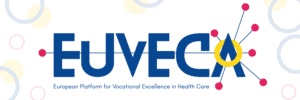The Faculty of Health Sciences of the University of Ljubljana is the largest and oldest higher education and scientific research institution in the field of healthcare in Slovenia. For years, international cooperation with partnership institutions has been an important activity of the school. In this way, our students are given numerous opportunities for cooperation, which additionally contributes to successful stories both on our research journeys and in the development of high-quality study programmes for health professions. Due to its diversity of study programmes and topical research fields, the Faculty of Health Sciences is becoming increasingly interesting to international students, teachers and researchers, as health and the environment are an important segment for all. Our colleagues and researchers are involved in numerous research projects, including with international partners, and contribute significantly to the development of science in healthcare. Our important competitive advantage is the fact that we educate experts in several professional fields. Therefore, we emphasise the importance of inter-professional collaboration in teams for our students during their studies and the related importance of the comprehensive treatment of users of health services. This interdisciplinarity is evident in the higher quality treatment and greater satisfaction of patients, which can significantly affect people’s health and well-being.

Ljubljana University
Role in the project:
Within the EUVECA project the Faculty of Health Sciences of the University of Ljubljana is taking the lead role in work package 2 – Setting the scene and within the elaboration of the baseline report (Needs analysis and Scoping Review).


